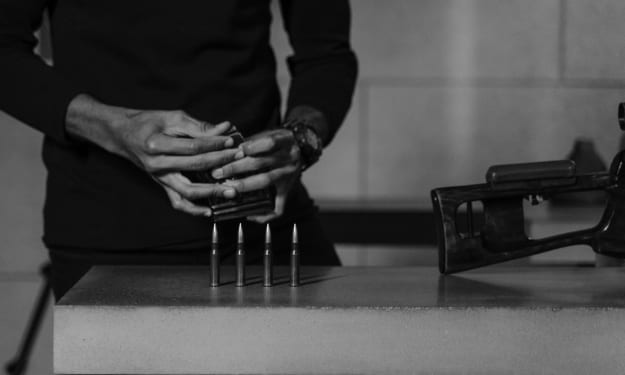Freedom on a Time Loop
Moment of Freedom

When I think of freedom, a formerly enslaved woman comes to mind first. A woman who was captured as a little girl, separated from her birth parents and sold to America. Never to see home again.
So many hostages of the Trans-Atlantic slave trade had this exact treacherous start. Few, very few charted the same path after reaching America’s shiny shore.
Phyllis Wheatley— as we came to know her— undocked that 3 month horror cruise in 1761 touching earth again in her in the U.S. Boston area. As an 8 year old, I wonder how many times she asked her captors, “Are we there yet?” In her native tongue, speaking as her original self. Unaware that her captors could not understand her, nor would they attempt to try. Did she think the ship docking was the end of her nightmare?
Her pre-pubescent body was herded through the hot, dusty streets of Boston, Massachusetts. Were her legs and feet tingling from not using them much for a quarter of the year? I have always wondered.
I imagine she got a kick out of her outfit. Her only accessories at the time were an iron collar and too-tight, rusty ankle bracelets. How many times did her young girl mind force this chain gang to stop and allow her wandering eyes a moment of bliss and admonishment? The pulling and tugging probably felt like it would never end. What was this strange new land? All these strange, beige people? Where was the guy that reminder her of an older brother back aboard the ship?
After a while, her feet moved mindlessly through the Boston streets. This herd movement reminded her of watching men back home in Gambia herd sheep. Never could she imagine being chattel. This walk was equal parts curious fun and uncertain terror in her young heart. The walk of shame ended with a stage play. Her little mind inquired of her co-chain mate, “Are we about to get on stage and perform?” Her mate, shrugged in confusion, not understanding the question, not speaking the same native tongue and not knowing any more than she did.
A bunch of yelling from the grumpy old pale men who smelled like 3 month old ship ride and moonshine erupted and their ankle bracelets were being unlocked. They seemed to have some strange system within their aggressive and slurred speech. Young Phyllis took in the distinct smell of one of her captors as he leaned down to unlock her ankles. Like wet dog, she thought in her head. Next, all her chain mates were ordered to lather up in what looked like duck fat.
One by one, they were herded up the stairs. Phyllis felt a rush of excitement travel through her bones and keep chill right around her ankles where the chains met her skin. She was a natural born performer. Back in her home, she would wow the village folks with her theatric story renditions of playdates and family excursions. She looked around and heard more of her captors doing what sounded like selling in a merchant shop. She couldn’t make out their words but their body language was very similar to what she’d seen when she accompanied her uncle to the market.
Out in the crowd were more beige people, this time she saw women. These women wore a ton of clothes, with covered hair, big dresses and skirts. What an elaborate use of fabric, Phyllis thought. The men, continued on with their aggressive sales speak down the line. Handing each of us off to the folks in the crowd who convinced the crowd they could afford us.
Her captor made it down the chain gang too little Phyllis. He took a disgusting look at her from head to toe before pulling her up to the front of this so-called stage. Phyllis felt a terrorizing sense of stage fright because she had no idea what her performance was supposed to be. All the people who had been front of stage before her seem to have given the wrong performance because now, they were no longer on stage. They were herded off to more strangers, screaming and hollering. The feeling of terror captivated her so much that her ankles grew weary in an instant of those ankle bracelets. Her captor caught her mid-slip and yanked her nearly naked body upright before starting his grunt-filled speech.
He couldn’t bear the sight and smell of is strong hold so her eyes wondered into the crowd. Right at the front of the stage was a young man who was dressed a bit different than the other angry grumps who stunk of the wretched moonshine. He met little Phyllis’ eyes and held up a wad of papers signaling to the “bad smell man” that Phyllis’ silent performance was over. He gave Phyllis a smile and a wink and made his way to the front of the stage.
Phyllis looked up once more at the monster from her cruise ride and for the first time saw a wry smile. The second thing she saw was what motivated the smile. Her captor and the nice man who smiled at her first were now exchanging what seemed to be currency and paperwork. Phyllis seeing the smiles all around her smiled too. Hey, this must be going well she thought. Her stage performance and love of theatrics did not fail her.
She left stage being walked gently by the hand of the well-dressed gentleman who she heard called, “John Wheatley.” Surely, she thought the end of her chaotic cruise adventures would end now that she was in a new set of seemingly safer hands. A “domestic servant” were the words used when pointing to her as she and her new babysitter set off from the town marketplace.
The long ride home to a huge new home that expanded for what looked like miles was far beyond anything baby Phyllis had ever seen. She saw men women and children who looked like her spread throughout the grounds—tending to the fields. He carriage horsehide seemed to happen in slow motion as they pulled onto the plantation.
This man was clearly an important person. He was not only kinder to her than the other ship captors had been but you could feel on him the presence of someone who was secure, respected, well-dressed and important. He hadn’t snatched Phyllis around, grunted at her or shoved her about. At the end of the entrance to the big house were a tall, slender pale woman they called Susanna. She had long, stringy yellow hair and next to her stood a younger frail clone of herself. Next to the yellow haired woman and her clone was a smaller clone of the well-dressed gentleman she rode with from town.
Upon arrival, the two littles ran to the carriage and pulled Phyllis’ hand chains toward them. Their faces filled with smiles and frantic mumbo jumbo words between the two of them. Phyllis had no idea what they were saying but she could tell they were excited. Maybe Phyllis had won them as playmates for a prize for her performance on stage? She smiled back and followed them down off the carriage. The tall, frail yellow haired woman looked on dispassionately, only marginally impressed with Phyllis. The children all smiled back and forth with one another, as the frail woman watched in amazement.
It seems like Phyllis was fast friends with her children. Then Phyllis flashed her captor’s wife a smile and that was the beginning of the end of her time in captivity. The yellow haired woman has been entranced by this sweet girls smile. So much so, that Phyllis was immediately welcomed inside their home.
As the weeks went on, the two children, Nathaniel and Mary insisted that their new playmate be a part of everything they were. The conditions were that Phyllis would have to complete her “domestic duties” first. That was not hard at all because the Wheatley home was filled with plenty of servants. Most days, Phyllis believed Susanna was really in market for a playmate for her children. Each day, the three children linked up after the light dish washing and laundry chores entrusted to Phyllis were complete. Their infectious laughter and play filled the walls of the Wheatley home. At night, of course, Phyllis was invited to live outside in the quarters with the rest of the domestic slave crew.
Most days, Phyllis thought she was getting the best of both worlds. Her best friends were the Master’s children and her own playmates were the most favored from the mainly mulatto domestic crew. Never did she internalize her existence as a slave. She had to take nonsensical envy from Susanna from time to time, but her friends on the domestic side forewarned her years ago that friction would happen eventually. “Apparently, it is in her nature and other beige, frail women’s nature to dislike Black women once our bodies develop and their beige men’s eyes wander to us instead.” Her mulatto homegirls taught her all the tricks to the trade to deal with envious women who resented domestic slave women simply because they weren’t suffering around the clock like most field slaves and “free white women” married to dignitaries. Phyllis knew how to stay in everyone’s good graces using the power of her infectious laughter, captivating smile and poetic words.
Each day, she grew to master their strange language and all others the Wheatley kids taught her. She also learned that the well-dressed gentleman was a respected tailor in Boston for important men—someone named John Hancock was a regular client. She continued to comprehend their language and the Wheatley family continuously got a kick out of seeing her learn more. Within sixteen months of her arrival to the Wheatley home she was learning the Bible, Greek, Latin, British literature, astronomy and geography. She was a marvel to the slaves and the beige folks. In Phyllis’ mind, however, she was just being herself. These people had no idea what a gifted reader, orator and performer she was back in West Africa. She didn’t bother to tell them either. The arts back there were totally different than what she was being taught in her new home.
At age 14, little Miss Wheatley had written an entire body of poems. The year was 1767 and an important man who her adoptive family of captors knew named George Whitefield had died. Phyllis was famed at this point for her poetry, so she penned a piece that was published entitled, “An Elegiac Poem, on the Death of the Celebrated Divine George Whitefield.” Her sincere words touched the hearts of all who read her work in the Wheatley home. After sharing her piece with the family of the dearly departed, Mr. Wheatley used his connections back in England to get her piece published in 1770. Her gifted beauty with words gained her notoriety throughout Boston and all the way in a far land called London.
At 17, Phyllis and her long time friend and playmate Nathaniel traveled to his father’s native land called London in 1773 at the call of the English Countess of Huntingdon. The two of them were there to begin the publishing of her book of poetry entitled, “Poems on Various Subjects, Religious and Moral.” Apparently this English Countess had paid for their travel and for the printing, publishing and production costs of her book publishing. Every day of that trip, Phyllis marveled at how fortunate she was back as a little girl to have flashed an innocent smile at that well-dressed gentleman on that stage.
Having her poetry published made her the first Black enslaved woman in America to have a book of poetry published. She made history for her people and all women in her captive land. Mr. Wheatley had all his famed homeboys sign the forward. Some of which, included John Hancock and a few other dignitaries. At 17 years old, nothing excited young Phyllis more than the opportunity to have her portrait drawn and included in the front cover of the book of poems. Every day spent in London felt like a dream. People recognized her, knew her name, and applauded her contributions to the “abolitionist movement.”
Phyllis could never quite grasp why anyone would be thanking her for advocating for the freedom of enslaved people. “They must forget that I’m technically a slave too...?” She thought to herself often as she overlooked the London hustle and bustle during her stay. Her favorite piece was entitled, “On Being Brought from Africa to America” where she details what she can remember of her life before captivity. For her 18th birthday, the Wheatley family made all her dreams come true by officially granting her freedom and liberation. Now, the lifestyle matched the life stage. She was free mentally the day she arrived in America. They gave her a stage and she worked it.
At the time following her liberation, people applauded her left and right for her bravery in showing the world that enslaved Black people are capable of intellect and artistry. Each day, Phyllis thought to herself simple questions and realizations in reaction to their astonishment. “Of course Black people have brains, we were operating fully functioning societies and we came here and helped build this society.” She was often confused at the enslavers confusion and at the abolishers astonishment.
Either way, she wasn’t going to let the nonsensical bickering among opposing sides distract her from getting this fame and notoriety she always imagined having. So she continued to write and produce poetry. She got so good at her gig, that when she wrote a letter to her homeboy in the Whitehouse, George Washington he wrote back. When he wrote back, he invited her to visit the Whitehouse and ended his note by calling himself her “humble servant.”
It was that moment that Phyllis knew for certain she was that girl. She was free and she had slave owners calling her their servants. She came, saw and collected the consciousness of an entire nation. All in the full regalia of a talent, enslaved Black woman.
She was born free and died free. The only tragedy that befell her life was that none of the three children she bore lived to carry on her legacy. Thankfully, she made such an impact during her lifespan that her story is an important part of American history.
About the Creator
Ariel Celeste Pirela
Ariel Celeste Pirela is committed to maximizing potential for others & documenting her own growth along the way. She leads a millennial motivation movement by instilling confidence, creativity and conviction with her affirmation products.






Comments
There are no comments for this story
Be the first to respond and start the conversation.